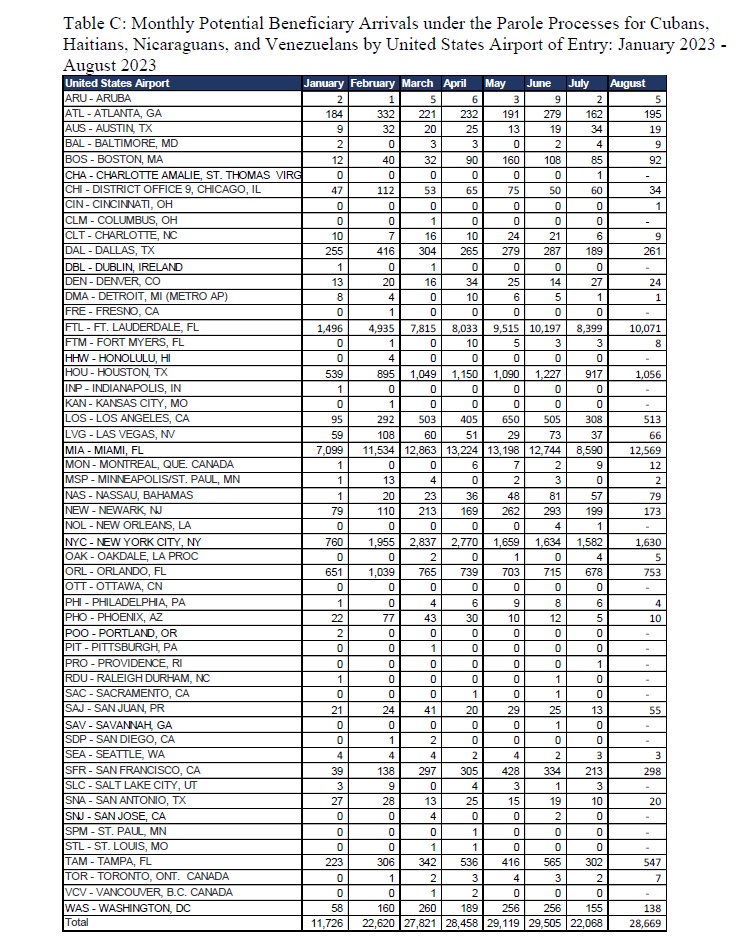Newly revealed data from the Department of Homeland Security (DHS), obtained through a subpoena by the House Homeland Security Committee and shared with Fox News, indicates that over 200,000 migrants have entered the U.S. under the Biden administration’s “CHNV” mass parole program in just eight months, from January to August 2023.
Support my independent journalism by becoming a paid subscriber if you are not already one. Allow me to keep sending these newsletters free for everyone.
The data highlights that a significant portion of these migrants, approximately 80% or 161,562 individuals, entered through four cities in Florida—Miami, Fort Lauderdale, Orlando, and Tampa. Miami alone saw 91,821 arrivals, making it the top destination for migrants under this program.
The program, launched in January 2023, offers a two-year humanitarian parole to 30,000 migrants each month from Cuba, Haiti, Nicaragua, and Venezuela. These migrants can fly directly to the U.S. if they have a sponsor and pass security vetting, completely bypassing the southern U.S. border.

Supporters of the program, however, argue that it represents a lawful use of executive parole authority, providing a safe and regulated pathway for migrants that discourages illegal border crossings. According to DHS, the program has successfully reduced the number of Haitians and Cubans attempting to cross the border illegally.
The subpoena response also revealed that as of October 2023, there is a backlog of about 1.6 million applicants waiting for DHS approval to fly to the U.S. under this program. Meanwhile, legal challenges against the program continue, with a recent lawsuit in Texas being dismissed due to lack of standing.
The debate over the CHNV program underscores the ongoing struggle to find a balance between humanitarian aid and immigration control, with both sides deeply entrenched in their positions.




















